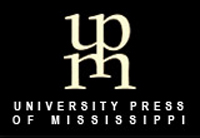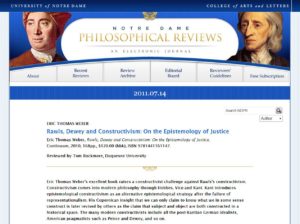This page is for the press folks looking for a one-stop site for info about my work and my biographical information. I’ve made a 1-page version of this press kit, as well as a 1-page interview resources on my latest book, Uniting Mississippi.
 Table of Contents
Table of Contents
Contact Info
Address:
Dr. Eric Thomas Weber
Department of Educational Policy and Evaluation
The University of Kentucky
131 Taylor Education Building
Lexington, KY 40506-0001
Email: eric.t.weber@uky.edu
Office phone: 859.257.1849
Fax: 859.257.4243
FB.me/EricThomasWeberAuthor
X.com/erictweber
Web site: EricThomasWeber.org
Publisher’s Senior Marketing Manager:
Kate Seburyamo
State University of New York Press
3825 Ridgewood Road
Jackson, MS 39211
Email: kate.seburyamo@sunypress.edu
Facebook.com/SUNYPress
Bsky.app/profile/sunypress.bsky.social
Web site: SUNYPress.edu
Biographical Info
Under 100 words:
Eric Thomas Weber, Lexington, Kentucky, is professor and director of graduate studies in Educational Policy Studies and Evaluation at the University of Kentucky and serves as executive director of the Society of Philosophers in America (SOPHIA). He is the author or editor of six books, including Uniting Mississippi: Democracy and Leadership in the South (University Press of Mississippi, 2015) and America’s Public Philosopher (Columbia, 2021). In 2015 he was selected for the Mississippi Humanities Council’s 2015 Public Scholar Award and in 2024, he was chosen for one of the University of Kentucky’s Alumni Association Great Teacher Awards.
In under 300:
Dr. Eric Thomas Weber is professor of Educational Policy Studies and Evaluation in the College of Education at the University of Kentucky and serves as executive director of the Society of Philosophers in America (SOPHIA). He teaches courses in Ethics and Educational Decision Making, the Philosophy of Education, and Philosophical Research Methods in Education. While at the University of Mississippi, in 2011 he was chosen for the Cora Lee Graham Award for Outstanding Teaching and in 2012 he was recognized with the Thomas F. Frist Student Service Award. He received the Mississippi Humanities Council’s Public Scholar Award in 2015.
Weber earned his bachelor’s degree at Vanderbilt University in Philosophy and Communication Studies. He then earned his master’s and doctoral degrees in Philosophy at Ohio University and then at Southern Illinois University, respectively. He has published six books, including Rawls, Dewey, and Constructivism (2010); Morality, Leadership, and Public Policy (2011); Democracy and Leadership: On Pragmatism and Virtue (2013); Uniting Mississippi: Democracy and Leadership in the South (2015); America’s Public Philosopher 2021); and the forthcoming A Culture of Justice (2026). He has been a contributing columnist for The Clarion Ledger of Jackson, MS, and for The Prindle Post at the Prindle Institute for Ethics in Greencastle, I. He also produced and cohosted nearly 90 episodes of the Philosophy Bakes Bread radio show and podcast on WRFL Lexington, 88.1 FM.
Weber is also a self-taught and then classically studied guitarist and musician. In 2000, he founded Tempest Records, his music recording and production company, in Nashville, TN. More recently, he has taken up the hobby of woodworking and has built tables, beds, shelves, and more. He loves to write, travel, make music, and play with his and his partner’s kids.
Extended Interviews
For more biographical information, you can check out an extended interview I gave for Southern Authors in 2014. Don’t miss page 2 of the interview. I also gave an extended newspaper interview for the publication of Uniting Mississippi, available online here.
OLD Headshots, Vertical and Horizontal – NEW ONES COMING!!
- Lyceum, U of MS, (c) Weber 2011.
- Ventress, (c) U of MS 2010.
- Studio, (c) U of MS 2011.
- Odom Hall, (c) Weber 2011.
- Ventress, U of MS, (c) Weber 2011.
- Barnard, U of MS, (c) Weber 2011.
Book Info
A Culture of Justice
In one sentence:
In A Culture of Justice, Eric Thomas Weber argues that there is a shared public obligation to establish and maintain a culture of justice, with implications for education, poverty, free speech, and “PC” culture.
In 100 words:
In A Culture of Justice, Eric Weber argues that there is a shared, public obligation to establish and maintain a culture of justice. Culture can be used to threaten people’s self-respect, diminishing their sense of positive power to pursue meaningful life plans. Weber addresses problems of poverty, racism, and threats conveyed by means of public speech and the cultivation of hatred. He advances John Dewey’s idea that democracy is a way of life, not merely political mechanisms. Weber offers recommendations for policies and practices related to poverty, education, free speech, and the set of norms that we call “political correctness.”
In under 200 words:
In A Culture of Justice, Eric Thomas Weber shows how culture can enable or inhibit the pursuit of justice. Weber argues that there is a shared, public obligation to establish and maintain a culture of justice. Culture can be employed to threaten people’s self-respect, to diminish their sense of positive power to pursue meaningful life plans. At the same time, efforts to change culture can run afoul of the liberal norm of nonintervention into people’s lives and cultures. Tensions abound in social and political life, which must be balanced with concerns for raising and educating the next generation into the kind of culture that justice requires.
Weber addresses problems of poverty and stigmatization, as well as of racism and threats conveyed by means of public speech and the cultivation of hatred. Advancing John Dewey’s idea that democracy is a way of life, not merely a set of political mechanisms, he draws implications for policies and practices related to poverty, education, free speech, and the inadequately named set of norms that we call “political correctness.” Written in an accessible style, A Culture of Justice offers numerous everyday examples and conflicts for the reader to consider.
The State University of New York Press (http://sunypress.edu)
JULY 2026, State University of New York Press, 304 pages, $29.95, ISBN 979-8-8558-0530-7.
The cover was designed in house at SUNY Press and was in part both titled and designed in homage to John Rawls, for his great contribution through A Theory of Justice.
Where to Buy
Local:
Where you can get a copy locally, let’s do that! If you’d like your book available at a local bookseller near you and it’s not yet available, reach out to SUNY Press’s Senior Marketing Manager, Kate Seburyamo, kate.seburyamo@sunypress.edu.
Online:
All the major online booksellers, including Amazon.com and Barnes&Noble.com. It is also available direct from SUNY Press Web site.
Speaking about the Book
I will be traveling to give talks about the book around the country. For more information, check out my Talks and Releases posts. This book has a lot to offer for scholars and students of social and political philosophy, students and practitioners of education, nonprofit organizations, and groups interested in racial justice. If you are interested in arranging a talk, visit my Speaking and Contact pages.
Uniting Mississippi
In under 100 words:
Uniting Mississippi applies a new, philosophically informed theory of democratic leadership to Mississippi’s challenges. The book draws on insights from classical and contemporary philosophical outlooks on leadership, which highlight four key social virtues: wisdom, courage, moderation, and justice. Weber brings to bear each of the virtues of democratic leadership on particular problems, with some overarching lessons and values to advance. Governor William F. Winter has written a foreword for the book, supporting its proposals.
In under 300 words:
Uniting Mississippi applies a new, philosophically informed theory of democratic leadership to Mississippi’s challenges. Governor William F. Winter has written a foreword for the book, supporting its proposals.
The book begins with an examination of Mississippi’s apparent Catch‐22, namely the difficulty of addressing problems of poverty without fixing issues in education first, and vice versa. These difficulties can be overcome if we look at their common roots, argues Eric Thomas Weber, and if we practice virtuous democratic leadership. Since the approach to addressing poverty has for so long been unsuccessful, Weber reframes the problem. The challenges of educational failure reveal the extent to which there is a caste system of schooling. Certain groups of people are trapped in schools that are underfunded and failing. The ideals of democracy reject hierarchies of citizenship, and thus, the author contends, these ideals are truly tested in Mississippi. Weber offers theories of effective leadership in general and of democratic leadership in particular to show how Mississippi’s challenges could be addressed with the guidance of common values.
The book draws on insights from classical and contemporary philosophical outlooks on leadership, which highlight four key social virtues: wisdom, courage, moderation, and justice. Within this framework, the author approaches Mississippi’s problems of poverty and educational frustration in a novel way that is applicable in and beyond the rural South. Weber brings to bear each of the virtues of democratic leadership on particular problems, with some overarching lessons and values to advance. The author’s editorial essays are included in the appendix as examples of engaging in public inquiry for the sake of democratic leadership.

The University Press of Mississippi (www.upress.state.ms.us)
SEPTEMBER 2015, 194 pages (approx.), 5½ x 8½ inches, foreword, appendices, bibliography, index
Paper $20.00T 978‐1‐4968‐0349‐8
Printed casebinding $65.00S 978‐1‐4968‐0331‐3
Ebook available
Cover photo, “We Are One Mississippi Walk and Candlelight Vigil,” November 7, 2012, by Bruce Newman, reproduced with permission. Visit his Web BruceNewmanPhotos.com.
The cover photo was taken the night after the 2012 Presidential Election, when the campus community came together for a candlelight “We Are One Mississippi” unity walk. The walk was the community’s response to some racial tensions that had made headlines the night before, when some students were upset and others happy about President Obama’s reelection.

Local:
Local book sellers in and around the South, like Square Books in Oxford, MS, and Wordsworth in Little Rock, Arkansas.
Online:
All the major online booksellers, including Amazon.com and Barnes&Noble.com. It is also available direct from the University Press of Mississippi.
Speaking about the Book
I will be talking about the book around Mississippi, such as in Hattiesburg at the University of Southern Mississippi, and in surrounding states, including in Arkansas and maybe soon also in Tennessee and North Carolina. For more information, check out my Talks and Releases posts. This book has a lot to offer for reading groups, parent teacher associations (PTA’s), community groups, nonprofit organizations, high schools, colleges, and universities, and more. If you are interested in arranging a talk, visit my Speaking and Contact pages.
Democracy and Leadership
In under 100 words:
Democracy and Leadership: On Pragmatism and Virtue presents a theory of leadership drawing on insights from Plato’s Republic, while abandoning his authoritarianism in favor of John Dewey’s democratic thought. The book continues the democratic turn for the study of leadership beyond the incorporation of democratic values into old-fashioned views about leading. The completed democratic turn leaves behind the traditional focus on a class of special people. Instead, leadership is understood as a process of judicious yet courageous guidance, infused with democratic values and open to all people.
In under 150 words:
Democracy and Leadership presents a theory of democratic leadership drawing on insights from Plato’s Republic, while abandoning his authoritarianism in favor of John Dewey’s democratic thought. The book continues the democratic turn for the study of leadership beyond the incorporation of democratic values into old-fashioned views about leading. The completed democratic turn leaves behind the traditional focus on a class of special people. Instead, leadership is understood as a process of judicious yet courageous guidance, infused with democratic values and open to all people.
The book proceeds in three parts, beginning with definitions and an understanding of the nature of leadership in general and of democratic leadership in particular. Then, Part II examines four challenges for a democratic theory of leadership. Finally, in Part III, the book tests the theory of democratic leadership in addressing problems of poverty, educational frustration, and racial divides, particularly aggravated in Mississippi.
Specs
Lexington Books of the Rowman and Littlefield Publishing Group (www.rowman.com)
NOVEMBER 2013 hardback, JANUARY 2015 paperback, 330 pages, 9¼ x 6¼ inches, preface, appendices, bibliography, index
Paperback $39.99T ISBN 978-0-7391-5123-5
Printed Hardback $90.00S 978-0-7391-5122-8
Ebook $34.78E 978-0-7391-5124-2
The book’s cover art was painted by the talented Ashley Cecil, who permitted me to use her wonderful piece, “Politician on a Podium.” Visit her Web site, www.AshleyCecil.com.
Where to Buy
Online:
All the major online booksellers, including Amazon.com and Barnes&Noble.com. It is also available direct from Lexington Books.

I have given talks on the book at a number of colleges and universities (including University of New Orleans, Georgia Tech, Webster University, Bemidji State University, and Northern Arizona University), for community and professional organizations (including the Tupelo Community Foundation’s Leadership institute, the Oxford MS Chamber of Commerce’s Leadership Lafayette institute, the National Society for Collegiate Scholars, and the Mississippi Association of Student Financial Aid Administrators). For more information, check out my Talks and Releases posts, though this Web site is somewhat new, and I need to catch it up, posting photos and info about the talks I’ve given in the past.
Topics:
- Ethics and Leadership
- The Virtues of Democratic Leadership
- Can Leadership Be Taught?
- The Challenges for Democratic Leadership
This book has a lot to offer for leadership development and education programs, community and professional groups, and colleges of arts and sciences. I believe and argue that the humanities have a great deal to offer for thinking about leadership. After all, leadership should be wise. It should be ethical. It should also try to moderate differences through understanding and have the courage to act or the right fears when action would do more harm than good. My field of philosophy and the humanities in general have a tremendous amount of value to offer for cultivating those leadership qualities. If you’d be interested in having me talk more with your group about these topics, visit my Speaking and Contact pages.
Earlier Books
For a list and info on all of my books, visit: http://EricThomasWeber.org/books/
Promotion Info
Past Live Appearances
Here are a few samples of my appearances on TV (WREG, Sweden National TV, & ESPN commercial) and an academic video blog interview (John Lachs conference).
Interview Resources
TV producers and radio directors are busy people. To make things easier for interviews, I’ve put together these tools, which press people should feel free to use for interviews with me. For convenience, I have also created a 1-page version of these interview resources.
Bio talking points – Dr. Eric Thomas Weber
- is director of graduate studies and professor of Educational Policy Studies and Evaluation at the University of Kentucky;
- has his Ph.D. in Philosophy;
- has published 6 books, including A Culture of Justice;
- teaches courses in Ethics and Education and in the Philosophy of Education;
- selected for a 2024 UK Alumni Association Great Teacher Award.
Product summary – A Culture of Justice
- shows how culture can enable or inhibit the pursuit of justice;
- argues that there is a shared, public obligation to establish a culture of justice;
- applies to racial justice, poverty and stigma, hate speech, and political correctness;
- advocates for democracy is a way of life, not merely a set of political mechanisms;
- draws implications for poverty, education, and free speech;
- releases in paperback July of 2026 with the State University of New York Press.
Interview topics – suggestions / angles
- Education and Culture
- Names, symbols, and mascots
- Flags, Statues, and Justice
- Free speech & Hate speech
- Poverty & Stigma
- Racial Justice
- Political Correctness vs Cultural Respectfulness
Sample interview questions and prompts
- A Culture of Justice suggests justice isn’t just about laws or politics. What exactly is a “culture of justice,” and how does it impact our everyday lives?
- What inspired you to write a book about justice and culture right now, in 2025? Why now?
- Flags and statues have been subjects of controversy, especially Confederate symbols. Why do symbols matter all that much for justice?
- Your book explores the idea of a “shared, public obligation” towards justice. What does that mean for the average person and is it realistic to expect this from everyone?
- You discuss the concept of “self-respect” quite a bit. How does self-respect relate to the idea of a just society, and how can a lack of self-respect actually be a form of injustice?
- What role does education play in building a more just culture, and what are some practical changes schools could implement?
- One part of the book talks about “cultural respectfulness.” What does that mean, and how is it different from “political correctness?”
- You argue in the book that justice is an ideal, but we live in the real world. What does it mean to fight for an ideal of a culture of justice?
- If we change flags or statues in the public square, but not what is in people’s hearts, have we changed anything at all really?
Endorsements
On A Culture of Justice:
“A pleasure to read, A Culture of Justice will appeal to a wide audience of social and political philosophers, scholars and practitioners of education, and people thinking about racial justice. Weber makes clear the relevance of the great American pragmatists to addressing current social and political problems such as poverty, hate speech, and racism.” — Nicholas Tampio, Fordham University
 On Uniting Mississippi:
On Uniting Mississippi:
“Rather than being fearful and pessimistic about our future here in Mississippi and in America, I regard this as being the time when we come together and put behind us once and for all the divisive and negative elements that have delayed the fulfillment of our hopes and dreams. This volume contains the blueprint to move us to the achievement of those worthy goals.”
—The Honorable Governor William F. Winter of Mississippi, from the Foreword
“The words ‘philosophy’ and ‘practical’ are rarely used together. Using the challenged state of Mississippi as an example, Professor Weber offers clear guidance on how inspired democratic leadership can bring about needed change. There are pearls of wisdom here for both the scholar and the aspiring leader.”
—Daniel W. Jones, MD, Professor of Physiology and Medicine & Former Chancellor and School of Medicine Dean, University of Mississippi.

—Susan Glisson, executive director of the William Winter Institute for Racial Reconciliation at the University of Mississippi
“This book is the beginning of a desperately needed conversation in Mississippi about the future of the state. It addresses an issue that nearly everyone is aware of–the need for high quality education for Mississippians–with an understanding that it must precede rather than flow from economic growth. Anyone interested in education policy in Mississippi should read and consider the case for education in this book.”
—Robert Mellen, Jr., assistant professor of Political Science and Public Administration and undergraduate coordinator at Mississippi State University
On Democracy and Leadership:
“This superbly researched and written book defines more clearly than anything that I have read in recent years the elements that are essential for a democratic political system to fulfill its proper mission. Coming as it does in a time of diminished public decision-making capability, particularly at the national government level, this volume points the way out of our current malaise. It should be read by every citizen who wants to see our system work as well as it is capable of. As a former governor of Mississippi, I can attest to the value of the wise and pragmatic counsel it contains.”
—The Honorable Governor William F. Winter of Mississippi
“From Plato through today’s college students, Weber’s Democracy and Leadership carefully examines the pedagogy of leadership development. Because the book is so rich in content and style, you can add Weber’s name to a select list of noted southern scholars and writers.”
—James L. “Skip” Rutherford, Dean, University of Arkansas Clinton School of Public Service
“This book will certainly reorient the field of leadership studies, but its impact will extend beyond that field. By connecting leadership with broader issues about participatory democracy, Eric Thomas Weber will find grateful readers across political theory. He strikes a tone of optimistic practicality that especially rings true for pragmatic generation Xers and civic-minded Millennials. This book and its author are positioned as precisely that sort of new public voice capable of leading the next generations as they rise into political power and leadership themselves.”
—John Shook, University at Buffalo, New York
On Morality, Leadership, and Public Policy:
“I cannot urge strongly enough the consideration of this ingenious, well-written study for inclusion in the policy curriculum. We seldom have a book that is both original and practical, and this work is both. We have a major problem in the world today, a shortfall in ethical understanding that is producing dire consequences for every level of government. We need to spark interest in the ethical dimensions of policy studies, and Professor Weber has provided us with both the spark and the tinder. I will make good use of his study, and hope others will too.”
–Dr. Paul Rich, President, Policy Studies Organization, Washington, D.C.
“If there was ever any doubt that philosophy belongs in the real world–in the realm of legislatures and leadership–Weber’s book lays it to rest. By a marvelously rich development of the pragmatic experimental method, the author shows how philosophy can make central contributions to dealing with some of our most vexing moral problems. Lucid thinking and accessible style make the book’s lasting insights unmistakable. A must-read for both philosophers and community leaders.”
–Dr. John Lachs, Centennial Professor of Philosophy at Vanderbilt University, Nashville, TN
“Morality, Leadership, and Public Policy is written in an engaging manner. So filled is it with clear and powerfully compelling ideas and suggestions that one cannot read the book without finding oneself examining one’s habitual ways of approaching difficulties and seeking new possibilities for meaningful collaboration with others in fashioning public policy. Although Weber writes explicitly for philosophers, his work can also be read with benefit by nonphilosophers who are concerned with the moral dimensions of public policy and leadership.”
–Dr. Royce Jones, Capps Professor of Humanities Emeritus, Illinois College, in The Journal of Speculative Philosophy
 On Rawls, Dewey, and Constructivism:
On Rawls, Dewey, and Constructivism:
“Eric Thomas Weber’s excellent book raises a constructivist challenge against Rawls’s constructivism…Weber’s Deweyan critique of Rawls’s constructivist conception of justice points to the difficulty in grasping Kantian constructivism. In Rawls’s writings, the reference to Kantian constructivism is so vague as to be essentially meaningless. That is one of the implications of this very useful book.”
— Tom Rockmore, Notre Dame Philosophical Reviews















 On Uniting Mississippi:
On Uniting Mississippi:

 On Rawls, Dewey, and Constructivism:
On Rawls, Dewey, and Constructivism:
 About Me
About Me